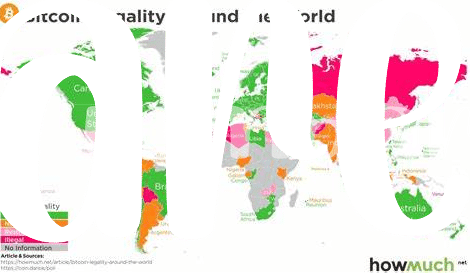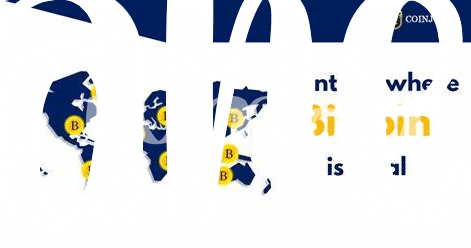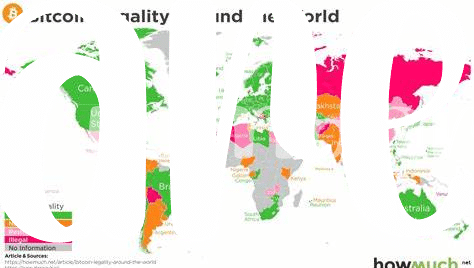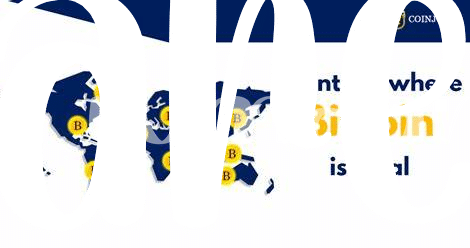🌍 Unpacking the Global Blockchain Craze

Imagine the whole world getting excited about a new way of keeping records – that’s the blockchain craze in a nutshell. Picture a giant, super-secure ledger that everyone can see but no one person controls. This isn’t just about keeping track of money; it’s a new method for securing all kinds of information, from who owns a piece of land to the temperature of a shipping container. Across the globe, people are realizing that this technology could make many parts of life safer, quicker, and more transparent.
Here’s a quick look at how widely this enthusiasm has spread:
| Continent | Examples of Blockchain Interest |
|---|---|
| Asia | Massive investment in technology startups |
| Europe | Adoption in supply chain and healthcare |
| Africa | Exploration of blockchain for banking the unbanked |
| Americas | Government pilots for record keeping |
| Oceania | Research into environmental sustainability solutions |
Countries around the world, recognizing the potential, are hopping on the blockchain bandwagon, exploring how this tech can streamline operations, cut costs, and beef up security. Whether it’s tracking the journey of a tomato from farm to table, making sure that the person you’re selling your car to pays you securely and instantly, or recording property ownership without the need for a myriad of paperwork, blockchain is reimagining the old ways. It’s a global movement toward trust, efficiency, and innovation that knows no borders.
💡 Countries Leading the Blockchain Charge
Around the world, a fascinating trend is emerging as nations big and small begin to embrace blockchain technology, the wizard behind the curtain of cryptocurrencies like Bitcoin. This global shift isn’t confined to tech-savvy powerhouses; even countries you wouldn’t expect are jumping on the blockchain bandwagon. For instance, Estonia has been a trailblazer, using this technology to secure health records and digital IDs for its citizens. Meanwhile, Singapore’s forward-thinking approach has made it a hub for blockchain startups, drawn by the government’s supportive stance and clear regulations. This worldwide enthusiasm isn’t just about keeping up with tech trends; it’s about realizing the potential for blockchain to make financial systems more inclusive, efficient, and transparent. As countries continue to explore and innovate, blockchain’s impact seems poised to go beyond the digital realm, promising a future where technology serves everyone more fairly and securely. For those looking to deepen their understanding of how this technology is transforming lives, especially for the unbanked, delve into the intricacies at https://wikicrypto.news/from-cash-to-crypto-transforming-lives-of-the-unbanked.
🚀 the Economic Impact of Blockchain Technology

Imagine a world where every transaction, no matter how small, is quick, safe, and recorded in a way that’s nearly impossible to cheat. This isn’t a scene from a sci-fi movie; it’s the real economic shift happening thanks to blockchain technology. Across the globe, this innovation is changing the way money moves, businesses operate, and even how governments function. By cutting out the middleman, blockchain can make processes more efficient and cheaper, giving both people and companies the power to transact directly with one another.
Beyond just sending and receiving money, this tech is creating new job opportunities and paving the way for innovative business models. 🚀 In countries that have embraced blockchain, we’re seeing the birth of entire industries focused on developing and implementing these technologies, from agriculture to healthcare, making the economic wheels turn smoother and faster. This is not just about boosting the current economy but about building a new one on transparency, efficiency, and trust. 💼💡 With each blockchain transaction, we’re stepping into a future where economic operations are more democratic, inclusive, and accessible to everyone, no matter where they are in the world.
🏛️ Governments and Blockchain: Laws and Regulations

Governments around our big, beautiful world are starting to see the light when it comes to the potential of blockchain technology. It’s not just about creating digital currencies; it’s about making things better and more secure for everyone. However, with great power comes great responsibility, right? That’s why laws and guidelines are stepping onto the scene. These aren’t meant to spoil the fun but to make sure that as this technology grows, it does so in a way that’s safe and fair for everyone involved. Just like when setting up a new game, you need to know the rules to play it right. Speaking of playing it right, did you know that there are smart ways businesses, even small ones, can protect their digital assets? For more insights, check out bitcoin cold storage methods and the blockchain. By creating a framework where blockchain can thrive, countries not only innovate but also protect their people and their economies. It’s a balancing act, sure, but one that could lead to exciting places.
💼 Blockchain Beyond Bitcoin: Diverse Uses Worldwide
When most people hear “blockchain,” they think of Bitcoin and other cryptocurrencies. But, this technology’s magic stretches far beyond digital money. Imagine a world where your favorite morning coffee is ethically sourced, and you can trace its journey from bean to brew. This is the reality blockchain brings to supply chains, ensuring transparency every step of the way. It’s not just about coffee; from securing medical records with the click of a button to casting votes from the comfort of your home, blockchain is transforming our daily lives. It also steps into the art world, guaranteeing that the digital masterpiece you bought is the one and only of its kind. Countries worldwide are noticing and integrating these uses into various sectors, pushing the boundaries of what we thought was possible.
| Sector | Use Case |
|---|---|
| Supply Chain | Traceability of Goods |
| Healthcare | Securing Patient Records |
| Government | Electronic Voting |
| Arts | Certification of Authenticity |
What’s unfolding is a story of how our global village connects, secures, and verifies transactions and interactions in ways we once imagined only in science fiction. Blockchain is indeed more than Bitcoin; it’s a revolutionary force across industries, impacting how we trust, transact, and keep track🌐✨.
🤝 International Collaboration on Blockchain Projects

As our world becomes more connected, nations are coming together to explore how blockchain can solve common problems and create new opportunities. Imagine a group of countries, each bringing their own strengths and ideas to the table, working in harmony like musicians in an orchestra. This isn’t just about sharing notes; it’s about creating a symphony of innovation. For instance, there’s a strong push to use blockchain to help small businesses thrive and reach those often left out of the banking system. A remarkable initiative focuses on making financial services accessible to everyone, no matter where they are or their economic status, which you can explore through the blockchain’s potential for the unbanked. Such collaborations don’t just stop at economic benefits; they extend to improving government transparency, securing data exchange, and even enhancing disaster relief efforts across borders. The diversity of these applications underlines the technology’s flexibility and its potential to address global challenges when countries work together. Through these shared projects, nations are not only driving technological advancement but also forging stronger international ties, showcasing the power of teamwork in the digital age.
